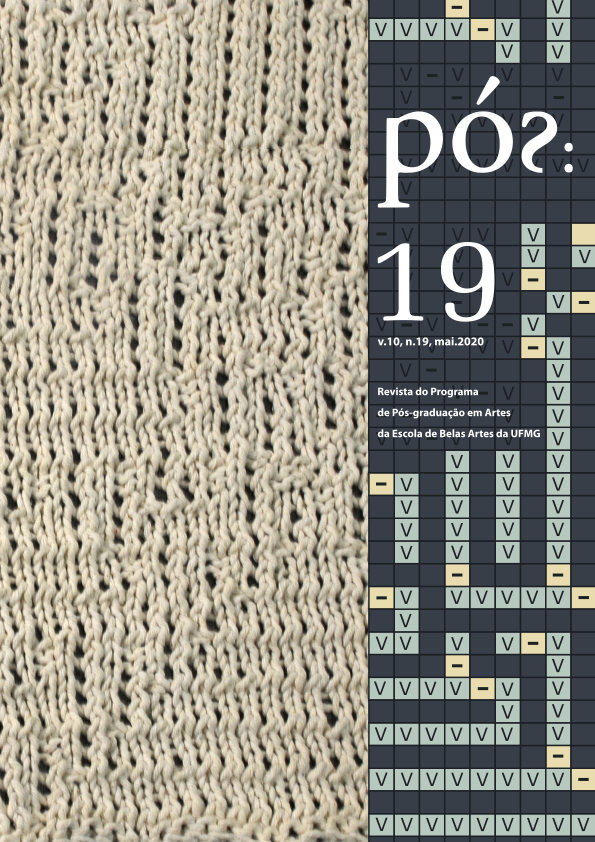Identidade híbrida
Um estudo do desenvolvimento da auto-identidade com mídias digitais e inteligência artificial
DOI:
https://doi.org/10.35699/2237-5864.2020.21572Palavras-chave:
Identidade, Híbrido, Auto-identidade, Tecnologia, Inteligência artificialResumo
A sociedade atual é constantemente fixada atrás de uma tela. Cada momento de nossas vidas acordadas é carregado e compartilhado online para que o resto do mundo navegue e a maneira como as pessoas nos vêem se tornou muito importante para nós. Nosso senso de identidade foi moldado para focar em como os outros podem pensar em nós, em vez deformar e entender nossa própria identidade. Este estudo vai investigar se nossas auto-identidades mudaram drasticamente devido ao mundo girar em torno da mídia digital. Além disso, se isso está levando ao desenvolvimento de uma nova forma 'híbrida' de identidade, que anda de mãos dadas com a tecnologia.
Downloads
Referências
CANBEK, N.G.; MUTLU, M.E. On the track of artificial intelligence: Learning with intelligent personal assistants. Journal of Human Sciences,v. 13, n. 1, p. 592-601, 2016
DIAKOPOULOS, N. Automating the news: How algorithms are rewriting the media. Cambridge, MA: Harvard University Press, 2019.
Dumas, T. M. et al. Lying or longing for likes? Narcissism, peer belonging, loneliness and normative versus deceptive like seeking on Instagram in emerging adulthood. Computers in Human Behaviour, v. 71, 1-10, 2017.
FLUSS, Donna. The AI Revolution in Customer Service.Customer Relationship Management, p. 38, jan. 2017.
GIDDENS, A. Modernity and Self Identity: self and society in the late modern age. Cambridge: Polity Press, 1991.
BAUMAN, Z. From Pilgrim to Tourist – or a Short History of Identity. In:HALL, S.; DU GAY, P. (Ed.). Questions of Cultural Identity. London: Sage Publications, 1996. p. 18-25.
HUANG, M.; RUST, R. Artificial Intelligence in Service. Journal of Service Research, v. 21, n. 2, p.155-156, 2018.
LASCH, C. The culture of narcissism: American life in an age of diminishing expectations. New York: Norton & Company. 1979.
LINDÉN, C.-G.; et al. News automation: The rewards, risks and realities of “machine journalism”. Frankfurt: World Association of Newspapers and News Publishers, WAN-IFRA, 2019.
LOPATOVSKA, I. et al. Talk to me: Exploring user interactions with the Amazon Alexa. Journal of Librarianship and Information Science, v. 51, n. 4, p. 984-997, 2018.
MANAGO, A. et al. Self-presentation and gender on MySpace. Journal of Applied Developmental Psychology, v. 29, n. 6, p.446-458, 2008.
MORRIS, J. Can computers create art?. New York: Atropos Press, 2009
MINSKY, Marvin. The Emotion Machine: Commonsense Thinking, Artificial Intelligence, and the Future of the Human Mind. New York: Simon & Schuster, 2006.
VAN HOUSE, N.; CHURCHILL, E. Technologies of memory: Key issues and critical perspectives. Memory Studies, v. 1, n. 3, p. 295-310, 2008.
VALKENBURG, P.; Schouten, A.; Peter, J. Adolescents’ identity experiments on the internet. New Media & Society, v. 7, n. 3, p. 383-402, 2005.
Downloads
Publicado
Edição
Seção
Licença
Copyright (c) 2020 Kenneth Alan Feinstein, Saifalla Walid Mohamed Awad

Este trabalho está licenciado sob uma licença Creative Commons Attribution-NonCommercial 4.0 International License.
Autores que publicam nesta revista concordam com os seguintes termos:
- Autores mantém os direitos autorais e concedem à revista o direito de primeira publicação, com o trabalho simultaneamente licenciado sob a Creative Commons Attribution-NonCommercial 4.0 International License que permite o compartilhamento do trabalho com reconhecimento da autoria e publicação inicial nesta revista.
- Autores têm autorização para assumir contratos adicionais separadamente, para distribuição não-exclusiva da versão do trabalho publicada nesta revista (ex.: publicar em repositório institucional ou como capítulo de livro), com reconhecimento de autoria e publicação inicial nesta revista.
- Autores têm permissão e são estimulados a publicar e distribuir seu trabalho online (ex.: em repositórios institucionais ou na sua página pessoal) a qualquer ponto antes ou durante o processo editorial, já que isso pode gerar alterações produtivas, bem como aumentar o impacto e a citação do trabalho publicado
- É responsabilidade dos autores a obtenção da permissão por escrito para usar em seus artigos materiais protegidos por lei de Direitos Autorais. A Revista PÓS não é responsável por quebras de direitos autorais feitas por seus colaboradores.












